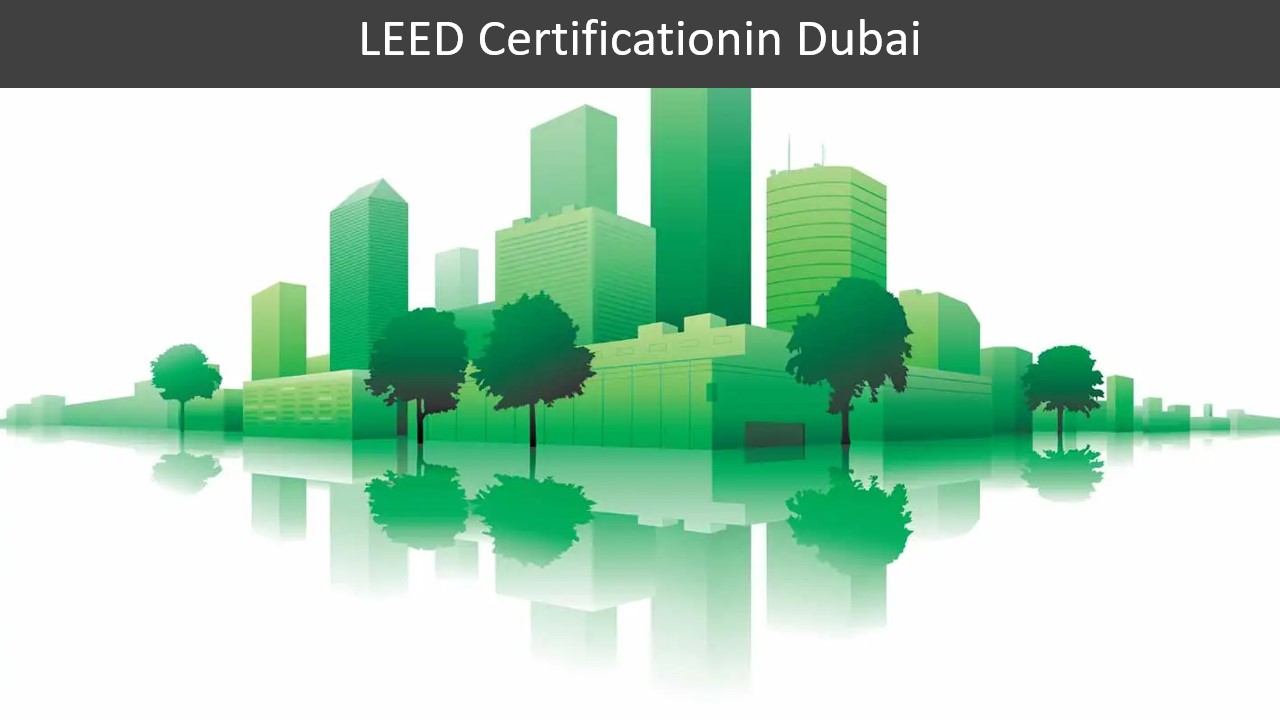Sustainable building methods can be certified using the well-recognized LEED, or Leadership in Energy and Environmental Design, system. The U.S. Green Building Council (USGBC) created LEED, which encourages ecologically friendly building and renovation practices and provides a framework for assessing building performance. LEED certification is becoming increasingly significant in the United Arab Emirates, a country marked by fast urban growth and unique environmental difficulties. The UAE is well known for its rapid economic growth and ambitious architectural projects, which have increased energy consumption and raised ecological concerns. By promoting energy efficiency, sustainable resource use, and improved indoor environmental quality, LEED certification helps to lessen these difficulties. The main advantages are Environmental Impact: Buildings with LEED certification contribute to resource conservation and reduce carbon emissions. Economic Benefits: Generally speaking, energy-efficient buildings have lower operating expenses. Market Appeal: LEED certification can raise a property's worth and attract Eco-aware customers. Benefits to Health: Better indoor air quality and natural lighting make places to live and work healthier.

The Procedure for LEED Certification in Dubai: Registration: The USGBC is where project teams start by registering their building project. Documentation: Teams gather and submit the required documentation to show compliance with LEED criteria. Evaluation: The USGBC allocates points according to several sustainability standards after examining the documentation. Certification Levels: Based on accumulated points, projects can achieve one of four certification levels: Certified, Silver, Gold, or Platinum. Agile advisors play a crucial role in the LEED certification process, especially given the complex regulatory environment in the United Arab Emirates. They contribute in the following ways: Agile advisors have specific knowledge of environmentally friendly building and design. They support project teams in successfully navigating the certification process and understanding LEED criteria. Since each project is different, Agile Advisors develop strategies tailored to each project's particular goals and limitations. This individuality is essential in the UAE, where cultural and climatic considerations influence building design. The cooperation of numerous stakeholders, such as architects, engineers, contractors, and local government agencies, is frequently necessary to obtain LEED certification. Agile advisors improve coordination and communication among these stakeholders, guaranteeing alignment with sustainability objectives. Agile advisors support a method of continual improvement. They conduct assessments at every stage of the project's life-cycle, finding chances to improve sustainability and guarantee adherence to LEED guidelines.
The success of sustainable practices is demonstrated by the numerous well-known projects that have earned LEED certification in UAE: Burj Khalifa: As part of its LEED Gold accreditation, this iconic skyscraper uses water-saving techniques and energy-efficient technologies. The Sustainable City: A ground-breaking neighbourhood with green spaces, water recycling, and solar energy created with sustainability in mind and earned LEED Platinum certification. Sustainable building principles are becoming increasingly important as the United Arab Emirates grows and modernizes. Agile advisors are essential in helping projects move toward LEED certification, a benchmark for superior environmental responsibility. The UAE can set the standard for a greener future and improve the lives of its citizens by using sustainable design concepts. Working with Agile Advisors can be game-changing for developers and property owners who want to become LEED-certified, guaranteeing that projects satisfy certification requirements and establish a standard for sustainability in the area.
